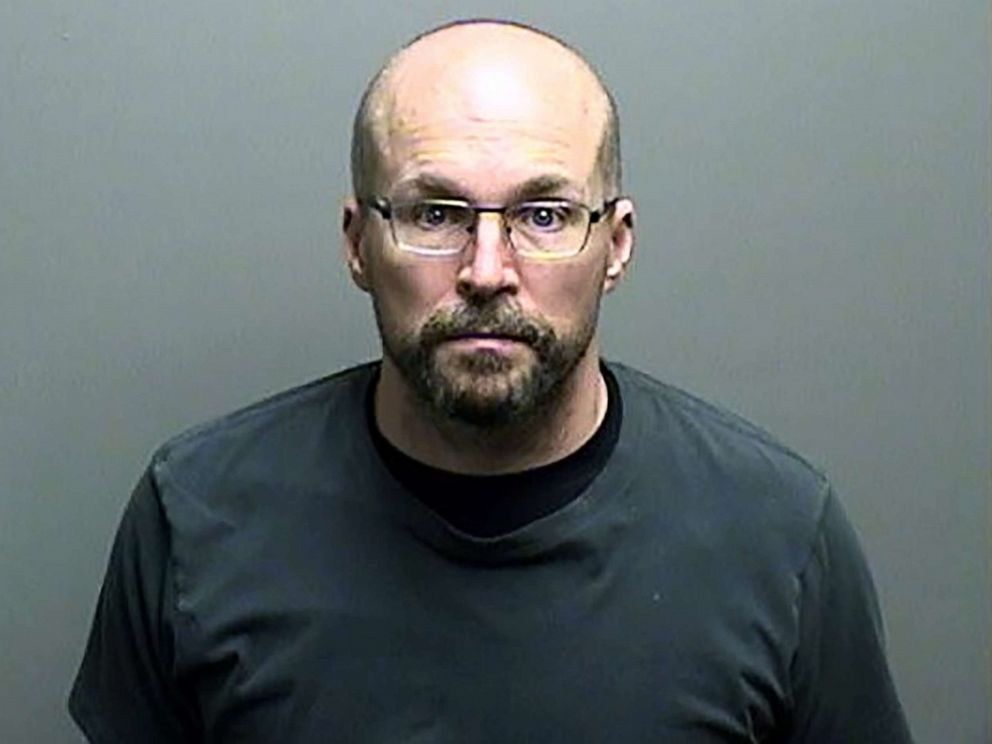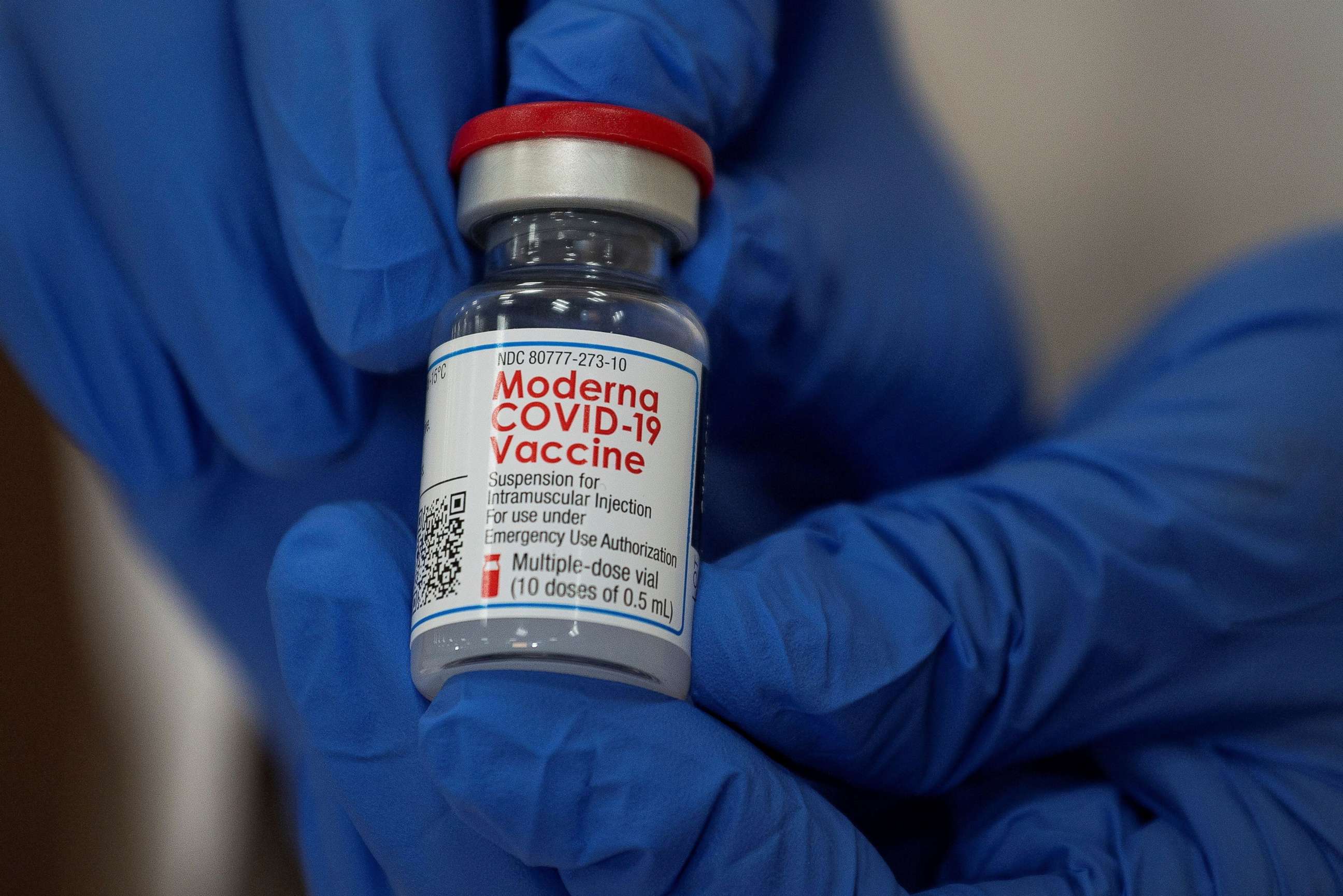Pharmacist sabotaged vaccines because he thought they were 'unsafe,' police say
The suspect gave a "full confession," the district attorney said at a hearing.
A Wisconsin pharmacist accused of deliberately sabotaging more than 500 doses of a COVID-19 vaccine allegedly told investigators he tampered with the vials because he believed they were unsafe, according to new details revealed Monday in court.
The Grafton Police Department released a probable cause statement revealing more details about Stephen Brandenburg's Dec. 31 arrest at his home.
The 46-year-old pharmacist, whose license was granted in 1997, was "an admitted conspiracy theorist," and told investigators he believed the Moderna vaccine "was not safe for people and could harm them and change their DNA," Det. Sgt. Eric Sutherland said in the probable cause statement.

Brandenburg gave "a full confession that he had done exactly this. His intent was to destroy the medication. He did the things that he was accused of," Ozaukee County District Attorney Adam Gerol told a judge during the Zoom video conference hearing.
There is no evidence to suggest that the COVID-19 vaccine alters people's DNA. Some companies, such as Moderna and Pfizer, use mRNA technology that introduces a small part of the virus' genetic code to teach the body how to fight off the real virus. But the vaccine doesn’t change the person’s DNA in any way, according to Gavi, the Vaccine Alliance.
Grafton police said Brandenburg had "intentionally" removed the vials from refrigerated storage at Advocate Aurora Health Hospital on Dec. 24 and Dec. 25, leaving them out to spoil overnight.
A pharmacy technician discovered 57 vials of the Moderna vaccine outside the refrigerator where the vials were meant to be stored Dec. 26. Each vial contains 10 doses; the approximately 570 doses that were spoiled had a value of $11,000, police estimated. However, due to the current pandemic and limited supply, some consider the doses priceless.
The Moderna vaccine must be kept refrigerated between 36 and 46 degrees Fahrenheit. Leaving it out of its temperature range can compromise its potency and "denature" the doses, according to Moderna.
The police alleged Brandenburg tampered with the vials not only with the full knowledge they'd be rendered "effectively useless" but also knowing that anyone who received those doses would be put at greater risk.
Fifty-seven of the compromised doses had already been administered by the time they were believed to be ineffective, Aurora Health Care Medical Group President Dr. Jeff Bahr said at a virtual press conference Thursday. The recipients of those doses were notified, Bahr said, and at the time, he said the remaining spoiled doses were then discarded.
Gerol, however, said the initial reports on the status of the vaccine vials weren't accurate.
The DA said he was informed today that the vaccine doses that had been left out weren't discarded but were sequestered by the hospital.
Investigators are waiting on tests to determine if they were damaged in a way that rendered them unusable. The charges against Brandenburg could change depending on the status of the vials, according to Gerol.
"The value of the drugs was somewhere between $8,00 and $12,000, but that, unfortunately all depends on whether they were in fact damaged or destroyed," Gerol said. "If they were not, despite the defendant's intent, there is no reckless endangering safety."
"You possibly have a crime in Wisconsin known as an attempted criminal damage to property," Gerol explained. "That would be a misdemeanor."
Faced with that still-open technical question, the judge ordered the suspect to be released on a $10,000 signature bond. Brandenburg, who was fired from the hospital after his arrest, was ordered to surrender his firearms and was barred from serving as a pharmacist.
The suspect's attorney declined to comment to ABC News. Brandenburg's next court date is Jan. 19. It is not immediately known when investigators' test results on the tampered vials will be ready.
Brandenburg sat mostly silent through the court proceedings, dialing in from the Ozaukee jail, wearing an orange shirt, glasses and a mask. He spoke only once, responding to a direct question whether he had any questions regarding the conditions of his release.
The Grafton Police Department said it is conducting the investigation along with the FBI and the U.S. Food and Drug Administration.

Two complaints by coworkers about Bradenburg allegedly bringing a weapon to work have been launched with the Wisconsin Department of Safety and Professional Services, a department spokesperson tells ABC.
A department prosecutor has officially opened an investigation into those complaints, which will be evaluated appropriately as to his licensure in the state.
Aurora Health will continue to work with Moderna and the Food and Drug Administration to identify a strategy for future vaccinations for the 57 affected individuals, Bahr said. He emphasized that "this was a situation involving a bad actor, as opposed to a bad process."
In the village of Grafton, about a 25-minute drive north from Milwaukee, Brandenburg's neighbor told ABC News the suspect kept to himself.
"I didn't even know he was a pharmacist," Tim Skow, 54, told ABC News, saying Brandenburg would wave across the way while mowing the lawn, but was not particularly outgoing in what Skow described as an otherwise "close-knit" community.
Skow said he was disturbed at the thought his own neighbor could have been allegedly involved in something so malicious.
"It's actually scary. Pharmacists are supposed to help people, not hurt them," he said.



